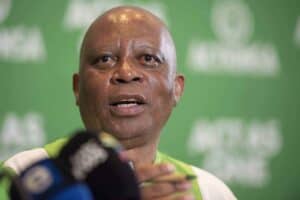ANC staff have not been paid for months, part of their job is administrative preparation for elections.

With judicial impartiality thrust into the spotlight during President Cyril Ramaphosa’s testimony to the Commission of Inquiry into State Capture, the Constitutional Court ruling on delaying local government elections will be scrutinised for signs of political bias.
At the commission, we heard the ANC’s deployment committee may influence the appointment of judges. That’s a serious issue because the judiciary, like the media, is supposed to be a bulwark defending democracy.

LIVE interactive map, latest news, multimedia and more!
View MapThe Judicial Service Commission (JSC), which selects candidates for recommendation to the president for appointment, has an inbuilt ANC majority because the ANC has the most MPs. And because ANC deployees dominate other JSC positions.
So, when politically charged decisions are made by courts, much is at stake. The party which stands to benefit the most from the postponement of the 2021 local government elections is the governing ANC, which is in disarray.
ANC staff have not been paid for months.
Part of their job is administrative preparation for elections. Yet the divided, incompetent, corruption-riddled party failed to submit completed candidate lists in at least 35 municipalities before deadline.
The party is simply not ready for elections.
Hence its multiple desperate appeals. The ANC applied to the Electoral Court to compel the Independent Electoral Commission (IEC) to reopen its candidate lists.
In addition, the ANC-dominated IEC asked the Constitutional Court to allow for the 2021 local government elections to be delayed until next year.
Other political parties, better prepared, opposed the application. They want elections within the constitutionally mandated time frame, on the gazetted date of 27 October 2021.
There are several reasons why the ANC is so short of money that it must appeal for public donations. The Political Party Funding Act, which came into effect in April, has caused donors to be shy.
All who have made donations exceeding R100 000 to any party must be named. Some donors don’t want to be associated publicly with the ANC.
The shrinking economy has also affected donations.
A delay won’t necessarily fix the ANC’s donor problem, or unite the party. But the party might be able to submit proper candidate lists.
The ever-changing landscape of Covid variants and vaccinations makes it difficult to forecast whether elections next year would be safer, or more free.
There is a misperception that democratic SA has a history of free and fair elections, setting a shining example for all.
Retired Constitutional Court judge Johann Kriegler, who chaired the IEC during SA’s historic 1994 poll, let slip a sobering insight.
When writer Paidraig O’Malley asked him about horse-trading over vote counts, Kriegler replied: “If the parties are happy with it … I am happy with it. We can’t check everywhere. Come on, are you looking for chastity in a brothel?”
Not chastity, but voters don’t want to be screwed by judges or the IEC.
Support Local Journalism
Add The Citizen as a Preferred Source on Google and follow us on Google News to see more of our trusted reporting in Google News and Top Stories.






